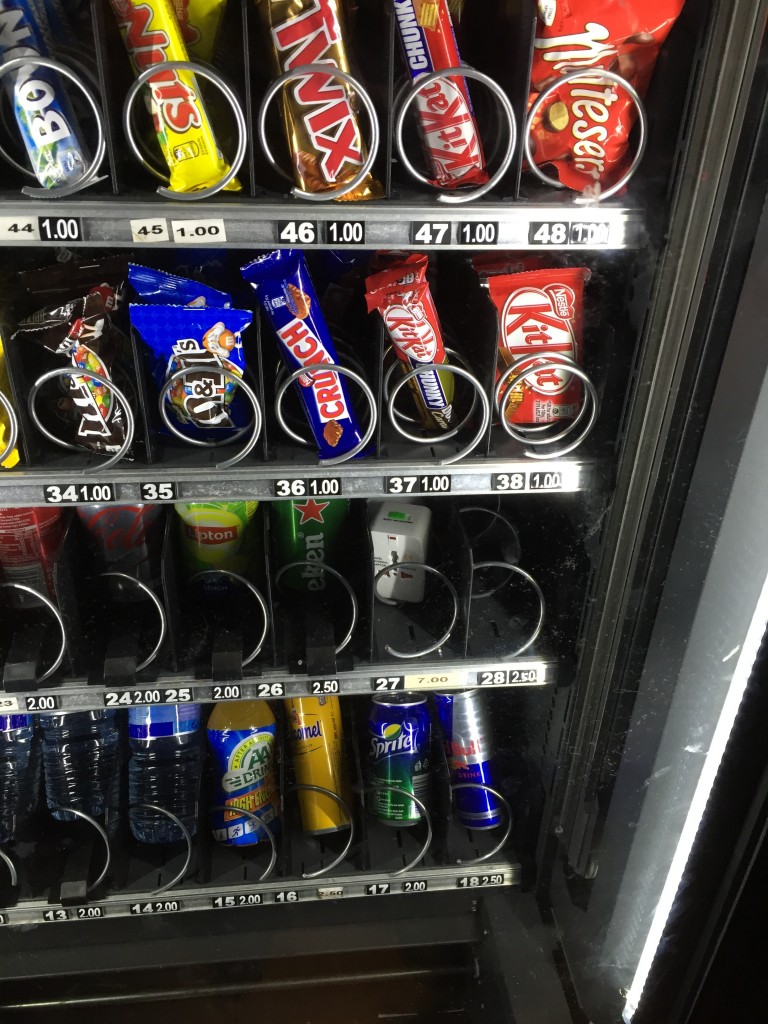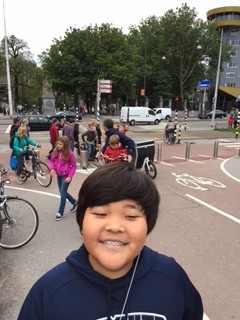- Written:
- Author: Edward
- Posted in: dr ed park, slice of life
- Tags: amsterdam, Dr. Ed Park, drinking age, illegal, marijuana, red light district, vending machine
Just thought I would share an image from Amsterdam that you would never see in the United States.
Beneath the Crunch bar and to the left of the power adapter, there is a Heineken beer, just sitting there in an unattended hotel vending machine.

In Amsterdam, some things that Americans regulate just aren’t regulated . This sort of laissez-faire attitude also permits the vast majority of bicycle and scooter riders to zip about without helmets (even though they are in constant danger from collision with us, the oblivious foreigners).

Then of course, we know of Amsterdam’s famous Red Light District, where softer drugs and prostitution are legal.
But let’s turn back to the meta-significance of a beer in a vending machine?
In the U.S., there would be liability for the vendor. The drinking age of 21 seems high and in 2008, college deans tried and failed to open a debate on lowering the age.
At my son’s boarding school, Phillips Academy Andover, the graduating class recently endured a horrible grad night by having 74 students arrested for underage drinking.
We presume, and with good reason, that many an American kid would buy beer and possible get into some trouble if we had such beer vending machines in our country.
Will we ever live to see beer sold like that in the US? There is too much tax revenue and other profit centers in corporate alcohol in the US to think of allowing deregulation of this kind. In fact, solvents are mandated by the feds to make pure ethanol toxic to discourage cheaper alcohol consumption and some things like benzene persist from the dehydration process as well.
The sad history of the deaths from intentionally poisoned alcohol during prohibition is explored here.
Clearly, our nation feels that ‘greater good’ of protecting regulated and taxable sales of ethanol-containing substances outweighs the lesser good of allowing people to have a safe and affordable intoxication from pure grain ethanol.
When you make something illegal, you place users at potential risk from unscrupulous users and the criminal element. In countries where the drinking age is lower, perhaps the kids learn to regulate themselves along the way instead of putting themselves at greater risk from the dangerous mix of having their drinking experiences away from home, with all the peer and adjustment pressures, yet none of the supervision.
I guess you could say the same thing applies to adaptogenic nutriceuticals like RECHARGE. As long as no corporations want in because of the lack of patent protection, there is no money in them and therefore no need to make them illegal. But a few months back, the FDA cleared a diabetes drug as an anti-aging candidate, tipping their hat to the notion of aging as a disease. I blogged about why this may a sign of the apocalypse for anti-aging here.
So our kids can kill and die for corporate greed in a foreign land but they can’t legally have a beer until age 21? Yep, those are the Puritanico-Fascist mores that we accept despite lingering suspicions of hypocrisy. Why teach responsibility and morality when you can just enforce laws and inculcate obedience?

